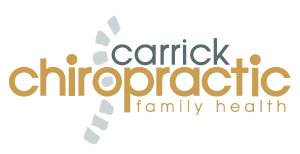← Complimentary Scoliosis Check for Under 16’s How Do You Sleep? →
How to Reduce Inflammation
June 14, 2016

Inflammation is your body’s response to physical, emotional, and chemical stress. The inflammatory response is your body’s way of maintaining homeostasis/balance. Our problem arises when the inflammatory response does not turn off, and is there all the time. Reversing the inflammatory process and minimizing these different types of stress on your body is the key to being pain free/disease free.
To deal with inflammation and pain, many people turn to non-steroidal anti-inflammatory drugs (NSAIDs), which suppress the symptoms of headaches, musculoskeletal pains, arthritis, sports injuries, menstrual cramps and allergies. But recently, as more and more people have become concerned about the side effects of drugs, they have begun to seek other ways to treat their condition. There are many natural ways to prevent inflammation as follows.
Omega 3 Fish Oil
Virtually every citizen in Industrial or Western nations tend to have chronically inflamed bodies and brains because they are eating too many omega-6 and too few omega-3 fatty acids. Experts believe that for optimum health we need a 1:1 to 4:1 range of ratio of omega-6 to omega-3 fatty acids, but we are eating a ratio of 20:1 to 30:1! In excess, omega-6 fatty acids are pro-inflammatory.
Consumption of anti-inflammatory omega-3 fatty acids can decrease chronic pain and inflammation and reduce the need for prescription NSAIDs, agrees Joseph Maroon, MD, a board-certified neurosurgeon at the University of Pittsburgh Medical Center, whose research has focused on prevention and treatment of injuries and diseases of the brain and spine. One of his studies showed that 2g of EPA/DHA daily reduced joint pain and the need for NSAIDs in 59% of patients with neck and low-back pain.
Sadly, eating fish is not a viable option because of the documented dangerous levels of pollutants and toxins. To ensure you are getting enough Omega 3 find a good quality fish oil that is cold pressed and purified.
Diet
In addition to increasing intake of anti-inflammatory compounds, returning to a healthy diet and nutritional support can help reduce inflammation and the risk of chronic diseases.
Humans are genetically adapted to eat a diet that consists largely of vegetation (fruits, vegetables, and nuts) and animals that ate vegetation. Our modern diet is based largely on grains, animals that eat grains, refined starches, soda and engineered foods.
Anti-inflammatory foods:
Fruits
Vegetables
Nuts
Potatoes
Fresh fish
Wild game
Grass/pasture-fed meat
Omega-3 eggs
Extra virgin olive oil (not used for cooking)
Coconut oil
Butter
Spices: ginger/turmeric
Pro-inflammatory foods:
Refined grains
Whole grains
Grain/flour products
Grain-fed meats and eggs
Most packaged foods
Most processed foods
Deep fried food
Trans fats (margarine)
Corn, safflower, sunflower, soybean oils
Most commercial salad dressings
AVOID
Sugar
Sorry but it’s true! Research confirms that sugar increases inflammation and excess sugar, plus it’s toxic to the nervous system. There are far to many side effects of sugar to go into detail here but they consist of insulin resistance, damage to arteries and therefore heart disease and eye problems, arthritis and nerve damage to mention but a few.
Fried Food
Bake, broil, or poach instead. Fried food is a source of Omega 6. This is because farmed meat and virtually every packaged or fast food is loaded with corn, soy, safflower or sunflower derivatives! Too much Omega 6 (toxicity) causes excessive inflammation.
Caffeine
Caffeine can increase inflammation in the body. Opt for caffeine free beverages, green/herbal teas and water.
Eat garlic
Garlic reduces joint swelling and inflammation. Fresh, organic, raw garlic is best. Once a day peel one clove, chop it into pieces, leave for five minutes and swallow in one go with a glass of water. (Do not chew as this could affect your social life!)
Ginger and turmeric
Studies have shown that combined or taken alone at levels of 2-4 grams per day naturally inhibit inflammatory chemistry and has been shown to reduce the pain associated with osteoarthritis, rheumatoid arthritis, and general musculoskeletal issues.
Drink more water!
Our bodies are comprised of 70% water. That water must be continuously replaced. What we replace it with makes a profound difference to our health. Unfortunately, in today’s society, too many people replace their fluids by drinking soft drinks, coffee and other highly acidic fluids. Water flushes toxins and other irritants out of the system and keeps your body hydrated.
Chiropractic
Chiropractic can be useful for solving chronic inflammation issues. Vergnolle et al recently demonstrated that swelling and oedema (this happens at a subluxated joint) results in the production and release of small molecules called neuropeptides that cause chronic inflammation. Elimination of subluxation restores proper joint biomechanics, resulting in the reduction of oedema and inflammation, which in turn eliminates the production and release of the neuropeptides causing chronic inflammation.
Exercise
Exercise is a great way to lower inflammation without any side effects associated with medications. An ideal amount? Not too much (which raises inflammation) and not too little. Aim for five days a week of steady exercise (brisk walking, swimming, yoga, biking) for 30 to 45 minutes. Regular moderate exercise tends to lower markers of systemic inflammation while acute exercise (marathoning, triathlons, ultra-endurance exercise) increases markers of acute inflammation.
If pain and inflammation is affecting your quality of life, please give us a call to arrange an appointment.
This entry was posted in
General. Bookmark the
permalink.
← Complimentary Scoliosis Check for Under 16’s How Do You Sleep? →


Leave a Reply
You must be logged in to post a comment.